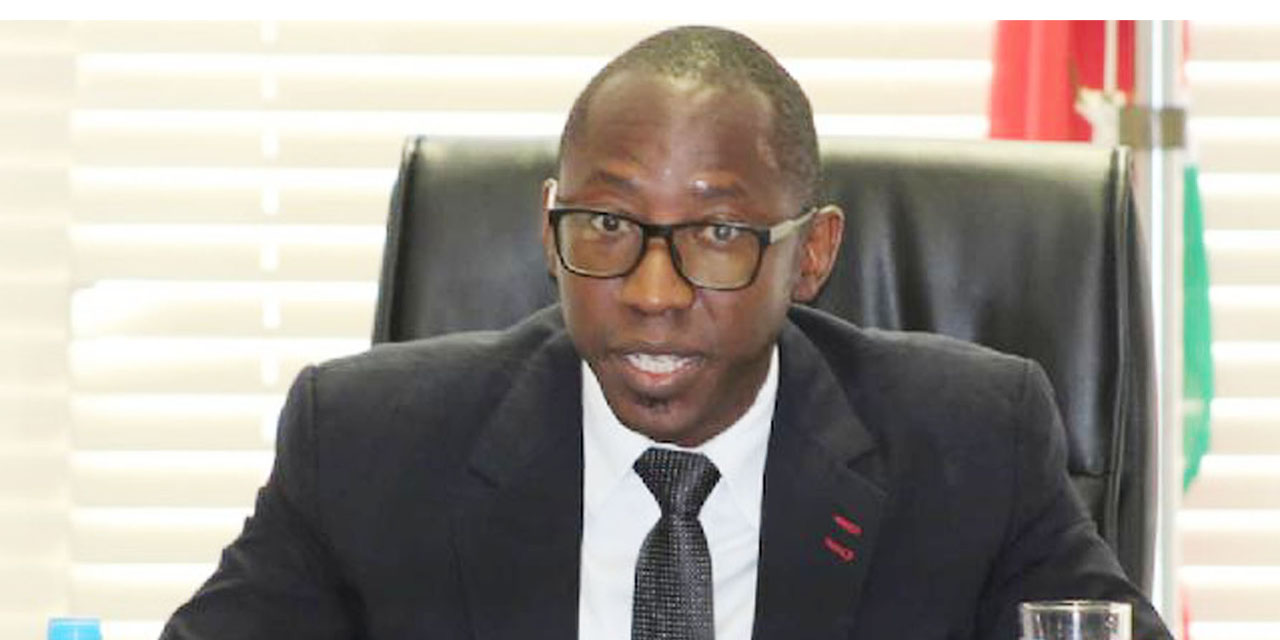Niël Terblanché
Neville Andre, the Governor of the Erongo Region, stressed the critical role of the media in the fight against corruption.
During a briefing on the inner workings of the Anti-Corruption Commission (ACC) in Swakopmund on Monday, he said that in a world where corruption is rampant and the unequal distribution of basic needs is the norm, the media can demand accountability and transparency from both the public and private sectors.
“The media, particularly investigative journalism, plays a pivotal role in exposing corruption to public scrutiny and combating impunity,” he said.
He cited the 2018 Organisation for Economic Co-operation and Development (OECD) report on the role of media and investigative journalism, which highlights numerous instances where media investigations have brought fraud and corruption to the attention of the public and law enforcement authorities.
“A prime example is the work of the International Consortium of Investigative Journalists (ICIJ), which has been instrumental in uncovering large-scale corruption,” he added.
According to Andre, the United Nations Office on Drugs and Crime’s (UNODC) publication “Reporting on Corruption: A Resource Tool for Governments and Journalists” of 2014 also examines good practices in journalism and legislation that promote broader freedoms of opinion and expression, supporting anti-corruption efforts.
In many countries, the media plays a direct role in the eventual criminal investigations into unethical practices.
He said that South Africa provided a good example where media reports on large-scale corruption led to significant investigations by the Office of the Public Protector.
“These investigations culminated in the 2014 Nkandla report and the 2016 State Capture report, which revealed unethical and illegal activities by a prominent politician, eventually contributing to his resignation in February 2018,” he said.
The governor also gave an example from Bulgaria, where a joint investigation by Radio Free Europe and the NGO Anti-Corruption Fund in 2019 revealed that high-ranking politicians and public officials had purchased luxury apartments at prices significantly below market rates.
“This investigation led to the resignation of the Justice Minister, three vice ministers, several MPs, and the head of the Bulgarian Anti-Corruption Agency,” he said.
According to Andre, the tangible effects of media anti-corruption efforts include heightened political debate and a greater sense of accountability among politicians, institutions, and public bodies.
“This was exemplified by the Panama Papers case in 2015, where leaked documents from the Panama-based firm Mossack Fonseca exposed secret financial transactions and offshore entities. This led to lawsuits in multiple countries and the recovery of over US$1.2 billion,” he said.
The governor also said that it is important to build a good relationship with the media and support its role in fighting corruption.
He believes that developing and enlisting media support will yield positive results in promoting accountability and integrity in Namibia’s private and public entities.
The mayor of Swakopmund, Dina Namubes, also addressed the gathering and said that corruption undermines trust, impedes development, and erodes the fabric of communities. She called for a collective effort from every Namibian to battle the scourge of corruption. “It is a battle that requires the collective effort of every citizen, institution, and organisation,” she said while thanking the ACC for its dedication and hard work.
Namubes pointed out that Swakopmund is not just a haven for tourists but a dynamic economic centre with vast potential for investment and growth.
“Transparency and open communication are vital elements in promoting the town as an investment and tourism hub,” she said.
She stressed the importance of collaborative efforts in the fight against corruption and reinforced Swakopmund’s leadership’s commitment to upholding integrity and transparency.
Both the governor and the mayor expressed their gratitude for the ACC’s dedication and called for continued cooperation towards a brighter, more transparent future for Namibia.




